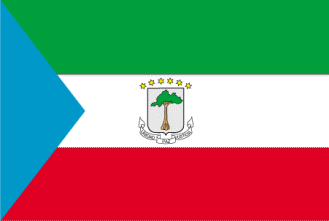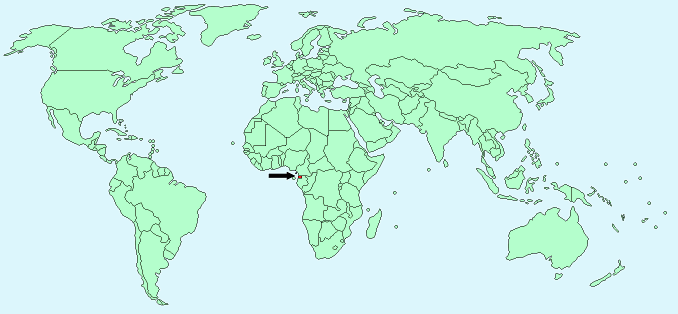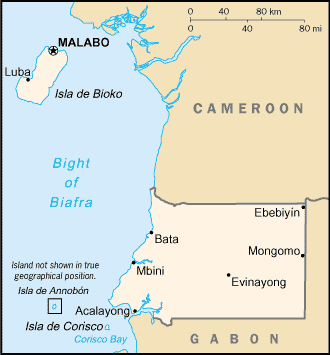Equatorial Guinea


Continent – Africa
Region – Central Africa
Size – 28,051 km²
Geography – hilly with coastal plains
Language – 67% Spanish, 32.4% other including French
Religion – Roman Catholic
Monetary Unit – Central African Franc
Natural Resources – petroleum, natural gas, timber, gold, bauxite, diamonds, tantalum, sand and gravel, clay
Agriculture – coffee, cocoa, rice, yams, cassava (tapioca), bananas, palm oil nuts; livestock; timber
Industry – petroleum, fishing, sawmilling, natural gas

Neighbouring Countries – Cameroon, Gabon
Population – 722,254 (2014 estimate)
Population Growth Rate – 2.73%
Average Life Expectancy – 63.49
Capital City – Malabo (137,000)
Highest Mountain – Pico Basile (3,008 m)
Longest River – Uola
Climate – tropical, hot and humid 19°C to 32°C
Yearly Rainfall – 180 cm (approx) mostly March to November
Plant Life – typical rainforest vegetation, yams, bananas
Animal Life – Monkeys, chimpanzees, elephants
Harvard Reference for this page:
Heather Y Wheeler. (2015). Equatorial Guinea. Available: https://www.naturalhistoryonthenet.com/Facts_Figures/Country_Facts/equatorialguinea.htm. Last accessed Monday, July 18, 2016
Facts and Figures Pages
